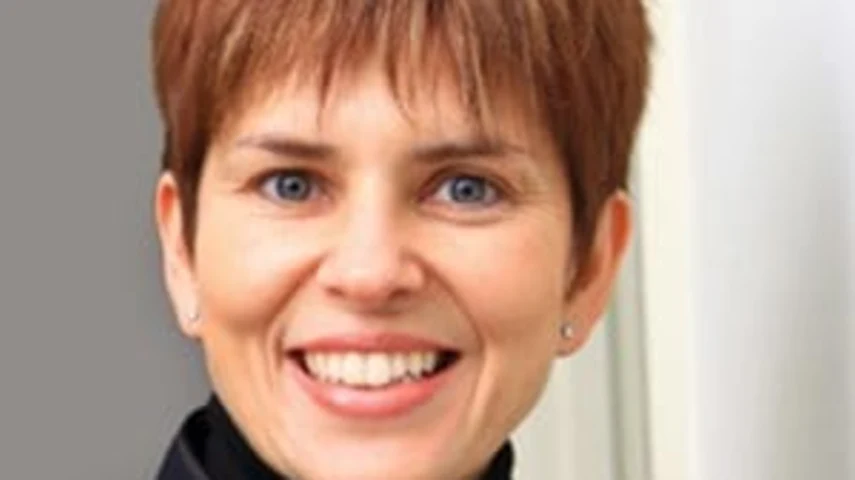Is it too soon for investors to abandon the cash safe haven?



As the shadow of the Global Financial Crisis finally passes, the popular ‘safety in cash’ philosophy seems to have departed too. But with an ageing population and the memory of the market crash, is it too soon to abandon the safe haven completely, Kate Cowling asks.
The memory of frantic clients calling up to swiftly move their investments into “a safe place” is still fresh in the mind of Unified Financial Services’ director and financial planner Michelle Tate-Lovery.
With the promise of protection from the volatility pervading other products, cash became the go-to safe haven for post-GFC investors frightened by any exposure to perceived globally-turbulent markets.
It’s a trend that, for the last five years, has not been easily replaced. Even last year, advisers were putting an unprecedented proportion of new client money into cash, research from Investment Trends suggests.
Clients were somewhat haunted by the experience of the GFC, according Tate-Lovery, and the risk aversion time-lag lasted much longer than expected.
But in the last 12 months, and more precisely in the last three months, there’s been a marked psychological shift.
“One of my clients, who was a bit scarred by the GFC and decided to work a bit longer, came in the other day and said to me “all the stuff that’s going on in the US – who knows? I just can’t listen to it anymore. I’ve just got to push on and invest’,” she said.
Tate-Lovery said the client’s attitude typified the perception shift planners are now seeing – clients are tiring of the “noise” and want to start earning more income from their investments.
This apathy towards recent fluctuations, coupled with historically low interest rates, has seen the appetite for cash dry up, replaced by the desire for higher yields.
What a difference a year makes
In the last 12 months, there has been a significant drop in the proportion of new client money planners are putting into cash, according to Investment Trends.
In September 2012, advisers were storing 31 per cent of new client money in cash and term deposits – an historic spike and almost double the 16 per cent that was occurring in October 2010.
 “We’d been running surveys for 10 years and I think that was the highest we had ever seen it,” Investment Trends senior analyst Recep Peker said.
“We’d been running surveys for 10 years and I think that was the highest we had ever seen it,” Investment Trends senior analyst Recep Peker said.
However, when the last Investment Trends survey of planners was done in May this year (released July), the proportion of cash investments had fallen back to 19 per cent.
The sentiment was echoed by investment platform company Colonial First State (CFS), which saw $2.5 billion placed into cash in the year to June 2012 and $800 million the following year.
Peker attributed the fluctuation to a jump in investor confidence.
“You’ll get some commentary out there saying that part of the reason behind this is because of the interest rates being cut, but what we find is that something more important in determining the amount of money going into cash is just confidence,” he said.
“If you look at what peoples’ priorities are when it comes to selecting cash products, it’s not about getting the highest rate – for some it is – but generally the main purpose for cash is actually capital preservation.”
Investment Trends research from the end of last year showed 50 per cent of planners cited capital preservation as their top reason for investing in cash, with 25 per cent choosing it for its interest rate.
“That’s the role they see for cash – it’s just a hedge against all the uncertainty,” Peker said.
The catalyst for change
The key determinant that has reduced the appetite for cash – whether it’s the time that’s elapsed since the GFC, low interest rates or investor confidence – is subject to debate.
However, a number of analysts believe it’s a combination of factors.
 Colonial First State’s head of FirstChoice Investments Scott Tully said the desire for higher yields has pushed investors to look beyond cash for the first time in years.
Colonial First State’s head of FirstChoice Investments Scott Tully said the desire for higher yields has pushed investors to look beyond cash for the first time in years.
“All expectations suggest interest rates are staying low in Australia and investors will be looking for greater returns. And we expect that trend will continue,” he said.
“If you go back to 2009-10, there was a huge flood of money into cash and bank accounts, and what we’re seeing now is sort of the unwinding of that.
“People take different amounts of time to move out of that approach. I suppose what it comes down to is every investor has a different tolerance for risk.”
For Michelle Tate-Lovery as a grassroots planner, the feedback from clients is that they have grown tired of the low returns offered in cash and are becoming less risk-averse.
“We know for a fact that they’ve got a zero per cent return now. They know that that money isn’t going to last, we show that to them,” she said.
“Clients are in the mindset that volatility is here to stay and they’ve become more resilient.”
Tate-Lovery said after a tough few years, advisers have also adapted the way they handle risk with clients.
“Our view is that if a client doesn’t need to adopt a high level of risk because we can demonstrate to them that they will have enough money, then we advise not to unduly take on more equity exposure,” she said.
Still cachet in cash?
Despite the promise of stronger yields from other products, cash is not something that’s fading into the background yet, according to ING Direct’s executive director, customers, John Arnott.
“Cash is still growing strongly in the household sector, I think that’s the key message for me,” he said.
“It has slowed down slightly – no doubt that number will subside marginally – but I think there’s absolutely a structural trend in the market, whereby cash is still going to be particularly compelling and relevant to the vast majority of consumers.”
Arnott rejected the notion that investors had completely recovered from the GFC and were starting to readopt pre-GFC investment patterns.
“Cash is here to stay. It is secure. People still have memories of the 2008, 2009, 2010 environment and there has been a structural or cultural change in consumers’ attitude to saving.
“I call it the nanoculture. They’re not spending what they can’t afford and they have absolutely a stronger tendency to save for a goal or the unknown, as opposed to borrowing. That trend is here to stay,” he said.
It’s a trend seen in self-managed superannuation funds (SMSFs), which unlike other funds have seen trustees steadily building up cash levels.
An Investment Trends survey from earlier this year showed that last year cash levels in SMSFs were at $133 billion, while this year they grew to $140 billion.
Nonetheless, the proportion of total assets in cash and cash products has dropped marginally, from 28 per cent in 2012 to 26 per cent in 2013.
A cashless future?
With the economic outlook looking generally optimistic, the next few years should see a more pronounced move away from cash into other products, research suggests.
“When we ask them where they think they’ll be putting new client money in three years time, you can see that planners are hoping that the markets will be better,” Investment Trends’ Recep Peker said.
His research firm recently found advisers were only planning to put 14 per cent of new client money into cash, compared to the 19 per cent that’s going in now.
“The plan is to keep decreasing the allocation there and focus more on growth assets,” he said.
What this means for the future of cash offerings remains to be seen, but Colonial First State’s Scott Tully said there’s plenty of room for innovation.
“You’re never going to get the same security as a bank account, but there are opportunities to develop something similar to that.”
However, up until now it’s been “a puzzle no-one’s been able to crack”, Tully said.
Recommended for you
In this episode of Relative Return Insider, host Keith Ford and AMP chief economist Shane Oliver unpack the RBA’s decision to keep the cash rate on hold in the face of rising inflation and whether the governor’s hawkish tone is a sign of things to come.
In this episode of Relative Return Insider, host Keith Ford and AMP chief economist Shane Oliver discuss the September quarter GDP figures, which show Australia’s economy regaining momentum.
In this new episode of The Manager Mix, host Laura Dew speaks to Haley Devine, head of wealth management at MaxCap Group, to delve into private credit and commercial real estate.
In this new episode of The Manager Mix, host Laura Dew speaks to Benjamin Leung, head of systematic investments at Macquarie Asset Management, to understand the use of systematic investments.







